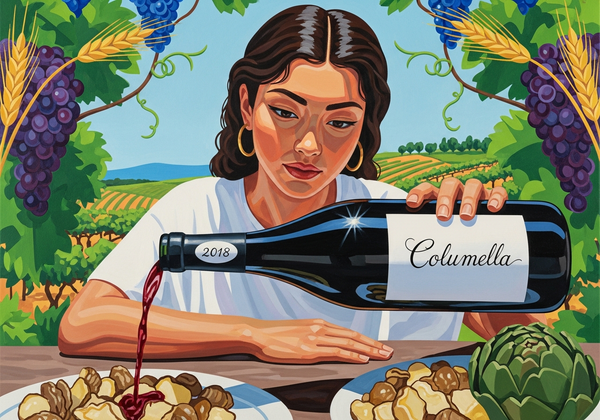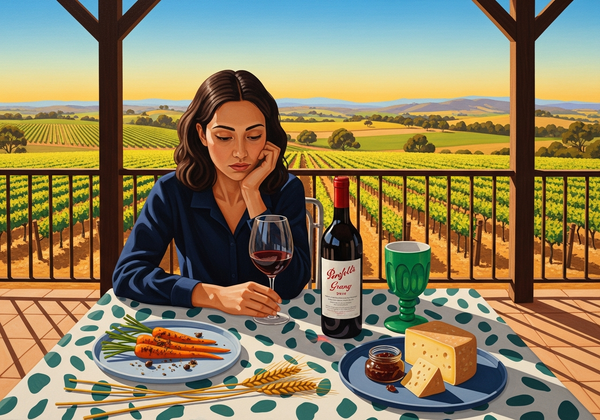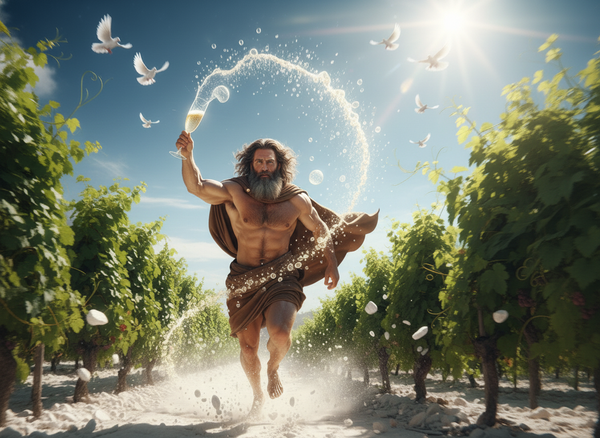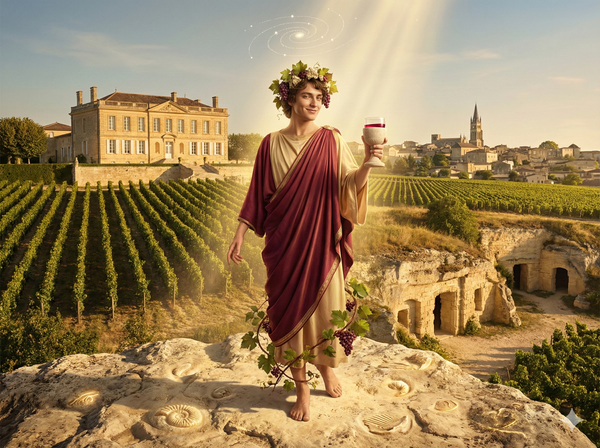“Paolo Bea: The Alchemist of Umbria” From ancient soils to wild ferments, Paolo Bea turned Montefalco into a sanctuary of patience, purity, and prophetic wines.
Paolo Bea is Umbria’s cult estate. From wild Sagrantino to golden skin-contact whites, the Bea family champions patience, purity, and natural winemaking—turning Montefalco into a symbol of authenticity.
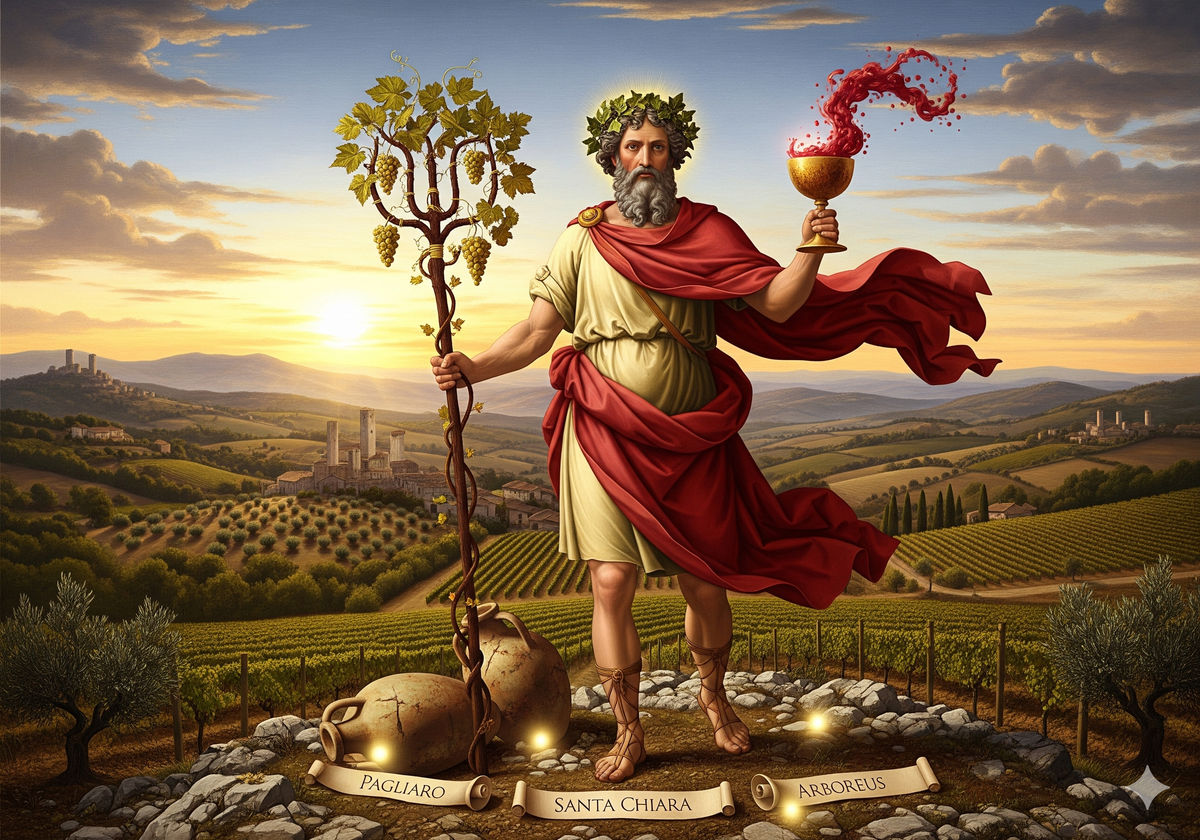
The Origins: A Family and Its Land
If Tuscany boasts dynasties and Piedmont flaunts crus, Umbria whispers its secrets through families like the Beas of Montefalco.
The Bea family has farmed the hills of Montefalco for centuries, but it was Paolo Bea, a farmer first and winemaker second, who transformed their estate into a beacon of authenticity. Beginning in the mid-20th century, Paolo insisted on wines made with no chemicals, no manipulation, no rush — decades before the world would call this “natural wine.”
Where neighbors sprayed, Bea refused. Where others bottled early, Bea waited. His creed was simple: nature is slow, and so must we be.
The Philosophy: Patience as Religion
Paolo Bea is not just a winery — it is a monastery of patience. Their approach can be summed up in four sacred principles:
- Organic and Biodynamic Farming – No herbicides, no pesticides, only healthy soils and balanced ecosystems.
- Wild Fermentations – Native yeasts only, long macerations, fermentations lasting months rather than weeks.
- Extended Aging – Wines often spend years in large old botti before bottling, and longer still before release.
- No Filtration, No Fining – Cloudy, alive, unpolished — each bottle is the vineyard speaking without translation.
To the Beas, wine is not crafted; it is revealed. Their role is to step back and let the land speak.
The Wines: Voices of Umbria
Bea’s range reads like a map of Umbria’s soul:
- Montefalco Sagrantino Secco “Pagliaro” – The estate’s flagship, 100% Sagrantino, a grape as wild and tannic as Umbria itself. Dark, dense, brooding, capable of decades of aging.
- Montefalco Rosso “San Valentino” – A blend of Sangiovese, Sagrantino, and Montepulciano. Rustic yet soulful, a wine of generosity.
- Sagrantino Passito – The ancient tradition: sweet, powerful, raisined, a wine of monks and feasts.
- Santa Chiara (white) – Skin-contact Trebbiano Spoletino and Grechetto, golden-hued, oxidative, almost amber — an Umbrian hymn to orange wine long before it was fashionable.
- Arboreus (white) – From Trebbiano Spoletino vines grown on living trees, macerated for weeks, producing wines of astonishing depth and texture.
Each wine is a text, a scripture, teaching patience and reverence for land and grape.
The Sagrantino Story: From Neglect to Resurrection
Perhaps Paolo Bea’s greatest achievement was championing Sagrantino, the native grape of Montefalco. For centuries, Sagrantino was a local curiosity, used primarily for sweet passito wines. Its tannins were considered too ferocious for dry reds.
But Bea insisted that, if treated with respect and patience, Sagrantino could rival Nebbiolo or Cabernet in grandeur. His Pagliaro Sagrantino Secco became the proof, a monumental wine of wild power and haunting longevity.
Today, Sagrantino is Montefalco’s calling card, and Bea is its prophet.
The Legacy: From Paolo to Giampiero
Though Paolo Bea himself is now semi-retired, the estate is guided by his son Giampiero Bea, who continues his father’s vision with monk-like devotion. Giampiero is also a co-founder of Vini Veri, the Italian natural wine consortium, furthering the philosophy of purity and authenticity across the country.
Together, father and son have turned a small Umbrian farm into a worldwide symbol of natural winemaking, admired by sommeliers, collectors, and seekers of authenticity.
Liber’s Take: The Alchemy of Refusal
What I admire about Paolo Bea is that he built greatness not by addition, but by refusal. He refused chemicals, refused shortcuts, refused the false promises of speed and polish. He embraced tannins others called too harsh, embraced oxidation others called flawed, embraced patience others called unprofitable.
Like me, he worshipped freedom — freedom for the vine, freedom for the wine, freedom for the drinker to encounter truth unmasked.
Paolo Bea does not make wine that flatters. It makes wine that demands. Demands time, demands attention, demands humility. And in return, it offers revelation.
Conclusion: Why Paolo Bea Matters
In the crowded chorus of Italian wine, Paolo Bea sings the voice of the monk, the farmer, the rebel. His wines are not easy, not obvious, not immediate — but they are eternal.
To drink Paolo Bea is to drink the essence of Umbria: rugged, patient, unyielding, and ultimately transcendent.
Paolo Bea: the alchemist of Umbria, turning patience into prophecy and Sagrantino into scripture.


